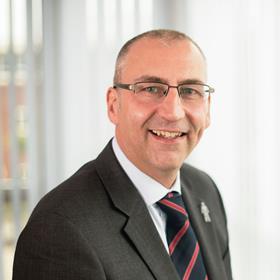David Baybut, partner and head of real estate at Stephensons Solicitors shares some of his work experiences, as well as some cultural recommendations.

How did you join the property sector?
At school, I was always drawn to maths and computer science, being of a more logical and a less creative mindset. I thought then that I was going to be an accountant. At college, I was obligated to sit another GCE and considered law may be interesting – and it was. It fascinated me. I was the first in my family to attend university and none of my family work in the professional services sector. At university, unsure of my career path, I chose to study a joint honours degree in law and computer science, achieving a first-class honours Bsc. I so enjoyed the subject that law was then my chosen career. Although I studied at Keele and did a law practice course at Chester Law School, I returned to work in a practice from my home borough. I began as a trainee in the firm where I am now head of real estate today.
What does your job entail?
I manage a team of more than 50 people, overseeing both the residential conveyancing team and commercial real estate team as well as being one of the owners of Stephensons. My role entails listening to clients in terms of their needs, challenges and frustrations and finding the best possible solution for them. I mainly work for developers, owner-occupiers and investors, and I am the contract manager for a number of our framework agreements in the registered provider and local authorities’ sectors. I spend a good proportion of my time supervising, supporting and training other team members. I do also like to keep a case load too. I still enjoy the challenge of completing on complex and quirky transactions. I sit on the Stephensons board and consider a number of crucial factors for the running of the firm and its governance.
What do you like most about the property industry?
I think I am a property geek, from the fabric of the building down to the title deeds. I am genuinely interested in buildings and different styles of architecture. I am also fascinated by the use of a property as much as its appearance. Having clients in all sectors definitely keeps it diverse and interesting.
And what do you dislike about it?
I think my biggest dislike at the moment is the undervaluing of the conveyancing process, particularly residential conveyancing – both in financial terms and in appreciation of the task. In many cases, the conveyancing of a property for a person (or indeed a business) will be one of the most important things that occurs in that person’s life. It is likely to be their biggest asset and biggest liability. It is where they spend most of their time. Behind family, it is likely their biggest commitment and investment. The conveyancing process can be complex and very time-consuming, yet residential conveyancing is one of the least paid/rewarded of the legal services. There are many lesser-qualified individuals charging hourly rates far greater than the residential conveyancer.
What would you change about the property industry?
Improved regulation of the conveyancing process beyond the solicitors and conveyancers involved. There are many other sectors involved, which are far less regulated; and for some, increased rules, regulation and guidance would in some cases definitely aid the entire process.
What barriers have you overcome?
I came from a shy working-class background and never had early opportunities to speak to audiences, so never had the best presentation skills unlike my advocate colleagues. I have had to overcome that and develop my own way of addressing larger groups, keeping them engaged and involved. At first, this was a role I feared, but now I am enjoying it far more. I just had to do it my way and be me, and then it was far more rewarding.
What are you most proud of in your career?
It is always great when your team beats targets and win awards, but I am particularly proud of being appointed as a board chairman and non-executive director to a number of housing associations and housing providers. This allows me to play a positive part in these organisations and make a difference to the housing and care of some of our communities’ most vulnerable people, including those with learning difficulties and the homeless.
What do you value in people?
I like a person to have a sense of humour. I also like transparency, and when someone does not avoid discussing a subject or problem, usually because there are difficulties that they do not want to deal with.
What advice would you give someone starting a career in the property industry?
If you are ever offered training or an experience, take every opportunity even if you are tired or busy. Every day there is an opportunity to learn something.





























No comments yet